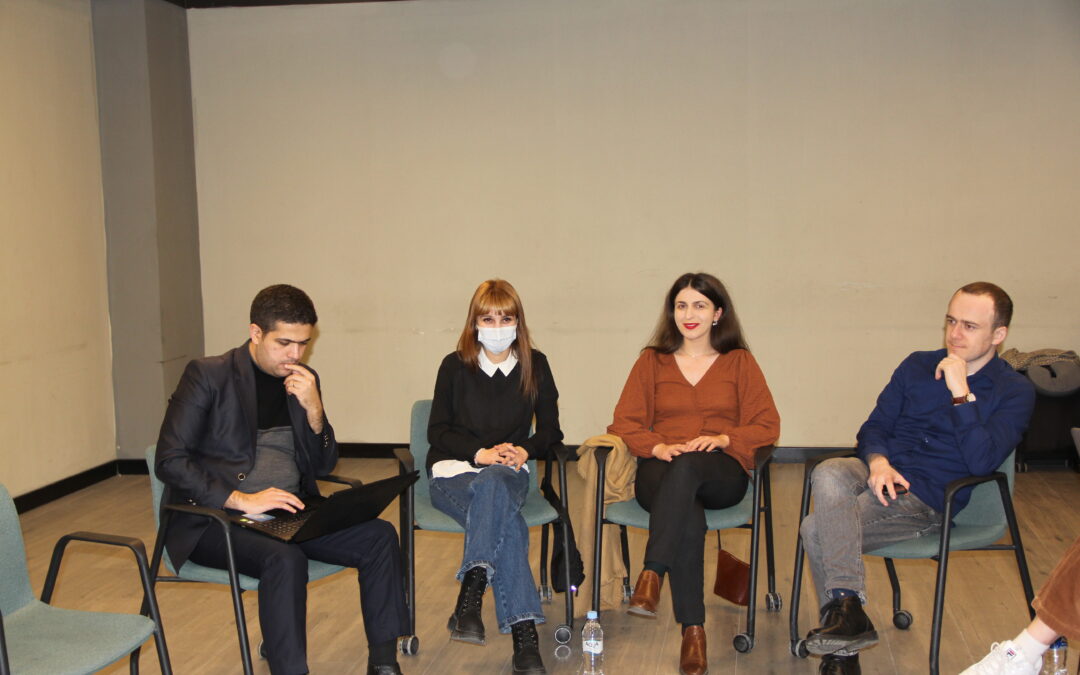By Ramin Habibzada, a youth leader, Secretary General of the National Youth Council of Azerbaijan (NAYORA)
Recently, I had the opportunity to participate in a peace education training program in Baku, Azerbaijan. The training was organized by the National Assembly of Youth Organizations of the Republic of Azerbaijan (NAYORA) and brought together participants from Germany, Georgia, and Azerbaijan. The program was designed to provide an in-depth understanding of peace education and explore the different ways it can be implemented in different settings.
Overall, my experience of the training sessions in Baku was fantastic. The training was informative, interesting, and interactive. I can tell that I learned a lot about peace education and its significance in society, the differences between peacekeeper, peacemaker, and peacebuilder words. The workshops that happened through the Baku session were very informative, and the speakers were experienced professionals with deep insights into the subject matter.
What Did I Learn about Peace Education?
The program covered a broad range of topics on peace education, including its definition, objectives, and strategies for implementation. I learned that peace education is a process that seeks to develop the knowledge, skills, and attitudes needed to create a culture of peace in society. It aims to address the root causes of conflict and violence, promote social justice, and build a sustainable peace. Moreover, peace education can be applied in a variety of settings, including schools, universities, community organizations, and non-governmental organizations.
In addition to this, I discovered that peace education takes different forms, such as curriculum development, teacher training, peacebuilding activities, and research. It emphasizes the importance of critical thinking, dialogue, and active participation in the peacebuilding process. Lastly, peace education is a lifelong learning process that requires the participation and commitment of individuals, institutions, and societies as a whole.
What Surprised Me about the Sessions?
The exhibition of words about peace surprised me the most. At the exhibition, all of the participants described their views on peace in one sentence, and it was lovely. This exhibition of words was a unique way to encourage participants to share their perspectives on peace, and it allowed us to explore different cultural perspectives on the topic.
My Interaction with Other Participating Countries
During the training, I had the opportunity to interact with participants from Germany and Georgia. I found the interaction to be a learning experience, as the participants were highly motivated and very active. What surprised me the most was that the participants explained the conflicts their states and nations had, and also shared their views about the conflicts of other countries. I learned a lot from the participants, and it was an enriching experience.
How Will This Experience Affect My Future Initiatives?
As a Ph.D. student in the field of international relations and a youth worker, I am committed to sharing the knowledge and experience that I gained during the peace education training program in Baku. I am planning to implement some events related to peace education and conflict management, and I will do my best to be a multiplier, sharing the information with others to create a broader impact.
My Message About Peace
In conclusion, peace is a vital and essential component for the well-being and progress of human society. It is not just the absence of war, but it encompasses social, economic, and political stability, human rights, and sustainable development. Achieving peace requires effort and commitment from everyone, from individuals to governments, and it involves promoting understanding, dialogue, and cooperation.
It also requires addressing the root causes of conflict, such as poverty, inequality, injustice, and discrimination. Only through peace can humanity fully thrive and reach its potential. So, let us strive towards building a world that values peace, justice, and equity for all.

